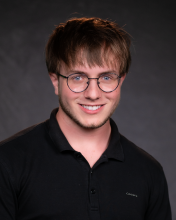
I specialize in materials synthesis with a focus on thin film deposition. This is a process where very thin layers of material are layered on substrates. These layers are often only a few nanometers thick. My research explores the development of topological insulator materials using a novel deposition process called Thermal Laser Epitaxy (TLE). This cutting-edge method, the first of its kind in the USA as of 2024, allows scientists to deposit high-melting-temperature refractory metals, such as tungsten, which were previously challenging to deposit using traditional evaporation techniques. The ability of TLE to reach temperatures beyond 3000°C in an ultra-high vacuum environment opens up new possibilities in material science by facilitating the inclusion of these refractory elements into epitaxially grown quantum materials.
What is your vision for your future; what do you expect to be doing after your fellowship?
After completing my fellowship and PhD at Caltech, I am considering pursuing a postdoctoral position to further deepen my research expertise. Ultimately, I desire to become a professor and mentor future students. My experiences volunteering and working with students have instilled a deep appreciation for teaching and guidance. I am inspired by the role my professors have played in my academic journey and aim to become a role model one day, providing academic and personal support to aspiring scholars.
What do you anticipate the most about your fellowship experience?
The NSF GFRP fellowship represents a significant achievement in my academic career, facilitating my entry into one of the top research groups at Caltech, led by Professor Austin Minnich. Known for their work on TLE, this group initially seemed out of reach due to its competitive nature. However, securing the NSF GFRP marked a turning point, granting me the opportunity to work within his famous group and explore uncharted territories in TLE processes. I look forward to the freedom and resources this fellowship provides to innovate and push the boundaries of material science.
What advice do you give to current students considering applying to programs?
My advice to students considering applying to programs like the NSF GFRP is to persistently seek advice and feedback. I consulted with multiple professors at RPI, some of whom I was not initially close with, and their guidance was priceless. Even if you doubt your chances, as I once did, it is necessary to continue refining your application. The process of applying can feel draining, but it helped me get through my first in-depth literature review. Remember, confidence and perseverance are your best friends in achieving what might seem like a dream.
